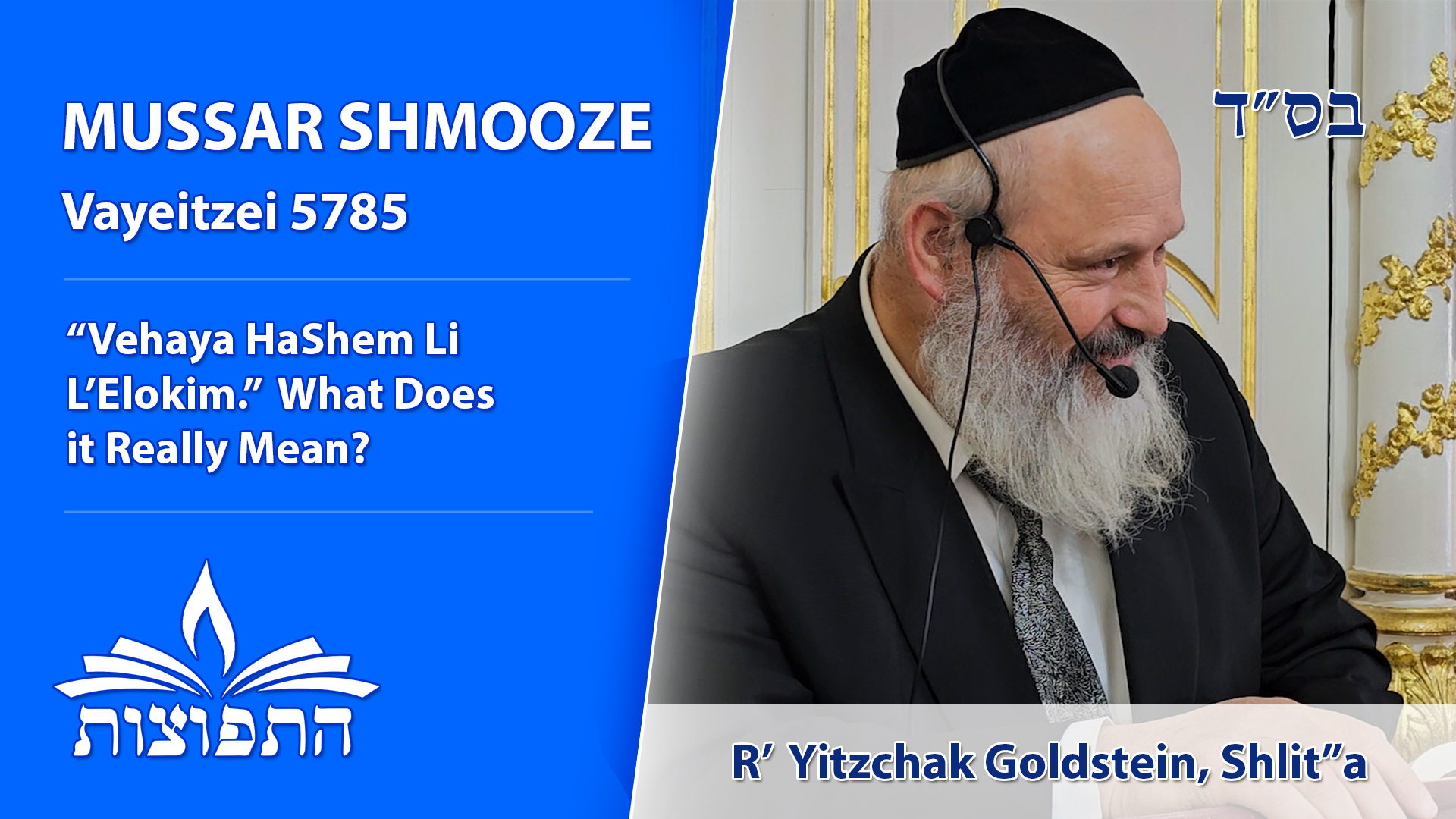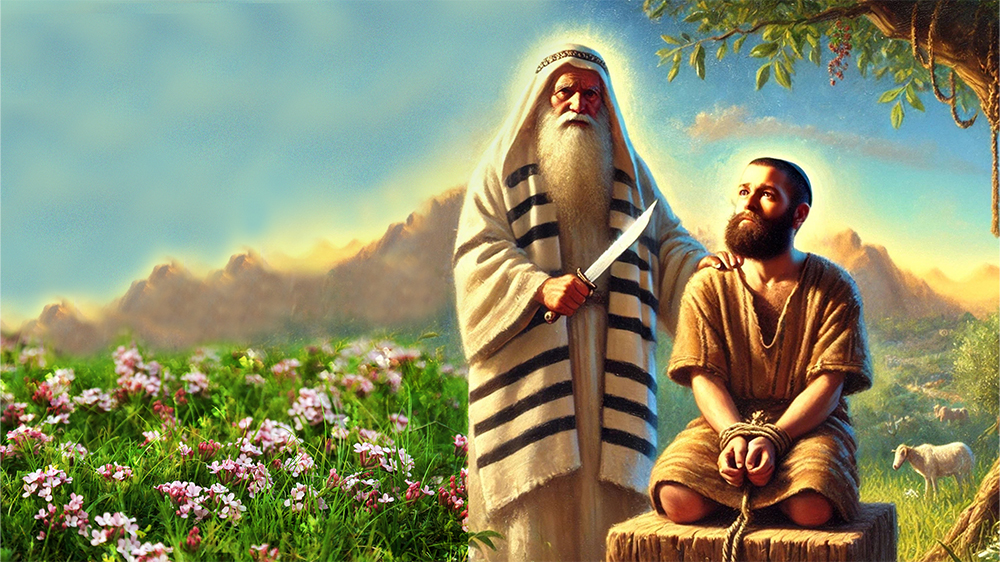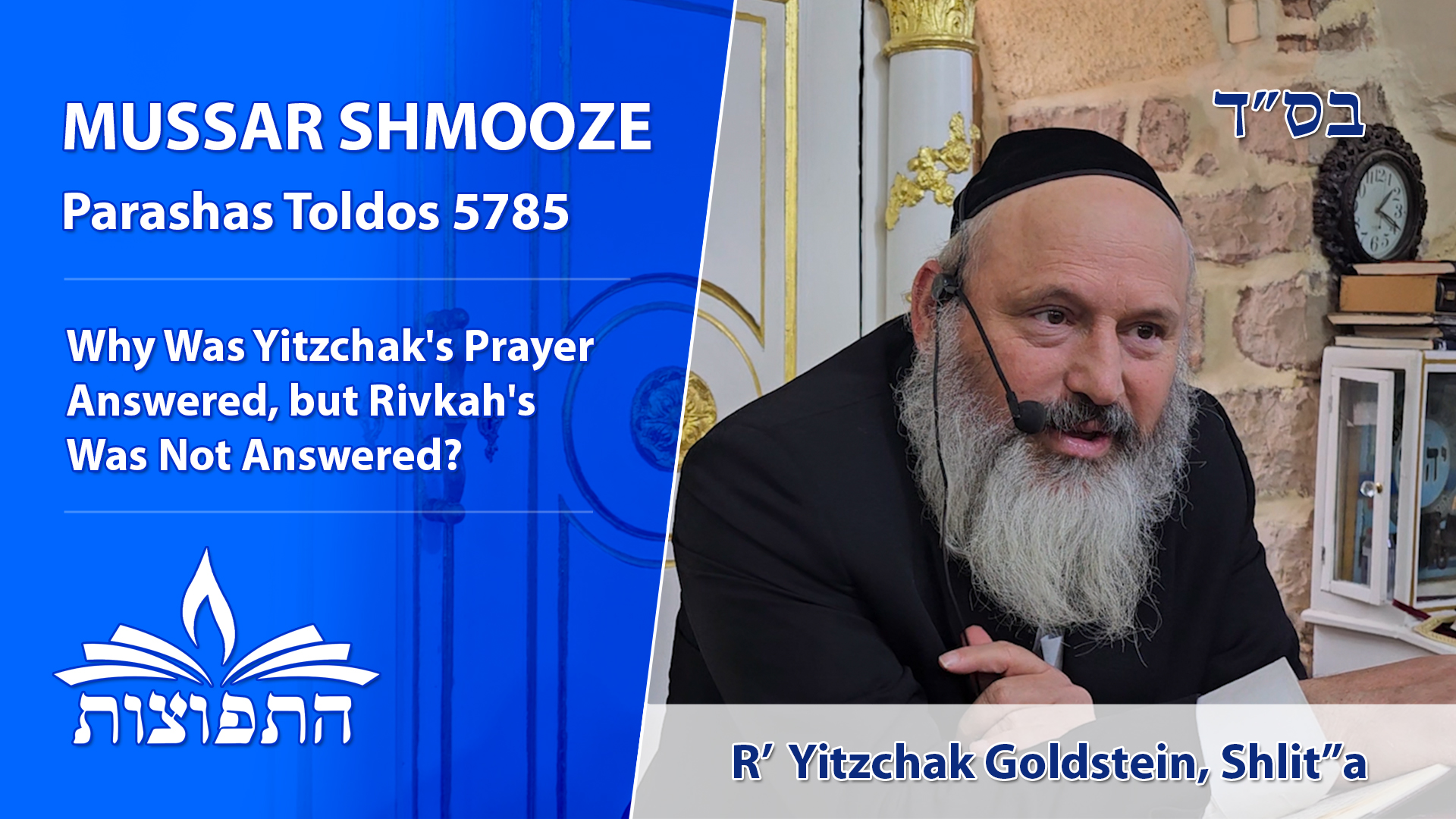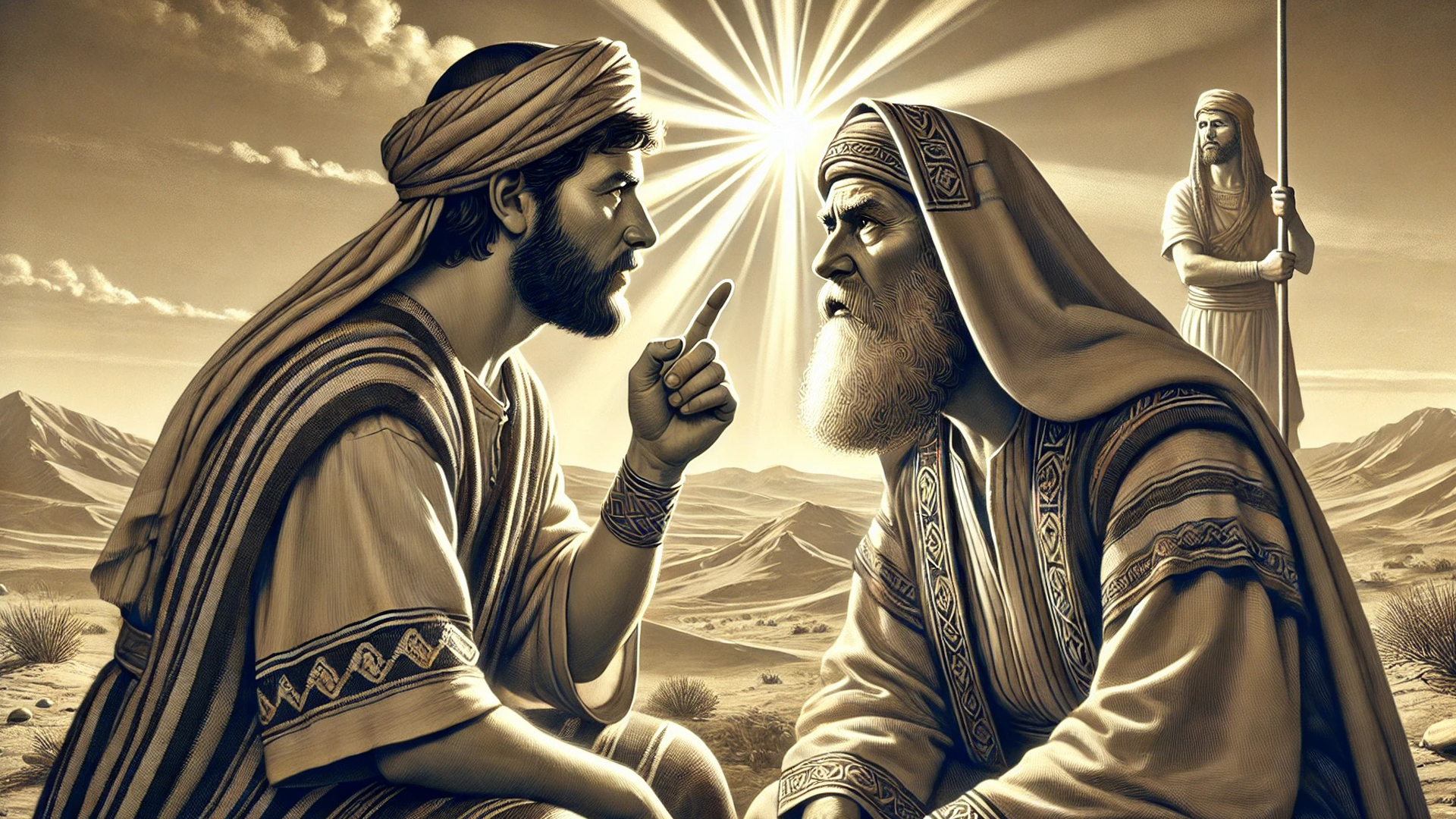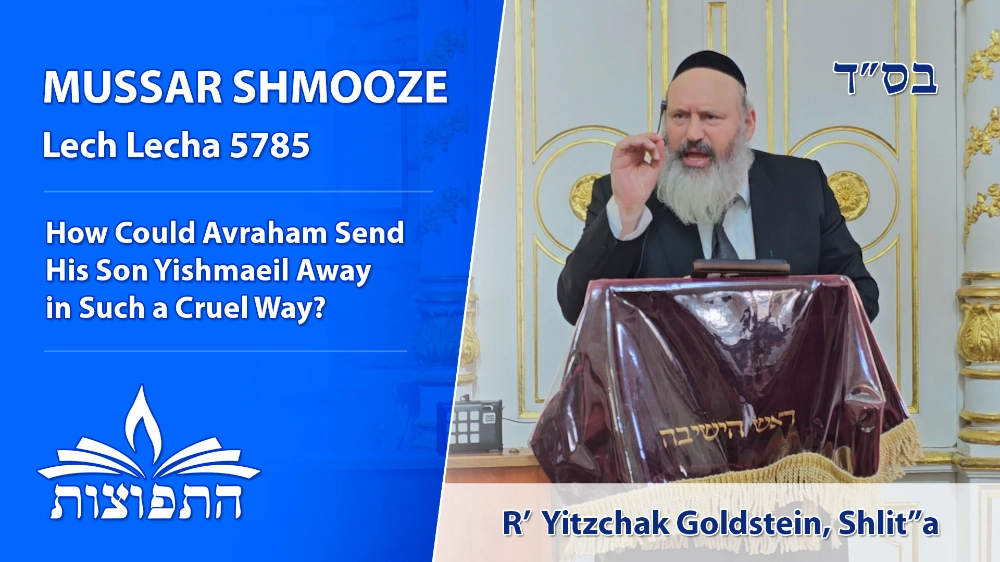Join Harav Yitzchak Goldstein Shlita for an inspiring Mussar shmooze on ‘V’ehaya Hashem Li Lelokim’ and explore its powerful message for personal growth.
Torah From Zion Eternity and Holiness of the Torah, the Land of Yisrael, and the Beloved Nation By David Schwartz December 3rd, 2024 / 2nd of Kislev, 5785 Every year, I think about what stood out to me about the …
Discover the story of Dinah, the power of imagery, and its lessons on influence, choices, and personal growth in this insightful reflection.
Yaakov removed his feelings from his heart in order to serve Hashem in the correct way. This is the epitome of Yaakov’s midda of emess, the central ambition in his life.
Uncover the deep duality of Esav’s character, Rivka’s struggle, and profound lessons on repentance and true righteousness
The Rosh Yeshiva speaks about the difference between the prayers of Yitzchak (Isaac) and Rivkah
(Rebecca) mentioned in Parashas Toldos, and explains the concept of the difference between a
Tzaddik ben Tzaddik (a righteous person who is a child of a righteous person) and Tzaddik ben Rasha
(a righteous person who is a child of wicked person), their prayers, and more.
The trait of emess [truthfulness] is different than we think. It does not mean one should simply act upon his true feelings, but that he should conduct himself according to what is the correct thing to do. Indeed, if a person just follows his emotions, he will lose his ability to judge and evaluate his actions.
Rav Yerucham Levovitz’s insights emphasize the critical importance of finishing a mitzvah, using lessons from Yehuda, Rabban Yochanan ben Zakai, and the concept of spiritual progeny. Learn why completing what you start matters in Torah and life.
Rabbi Mordechai Goldstein ztz”l explains the profound distinction between material rewards in this world and the true spiritual reward awaiting in the World to Come. Through the lens of Torah teachings, explore how mitzvot shape our journey toward eternal connection with the Divine.
The Rosh Yeshiva speaks about the spiritual reality involved in how Avraham could send his son
Yishmaeil (Ishmael) and his mother away, and related considerations about family life today.

